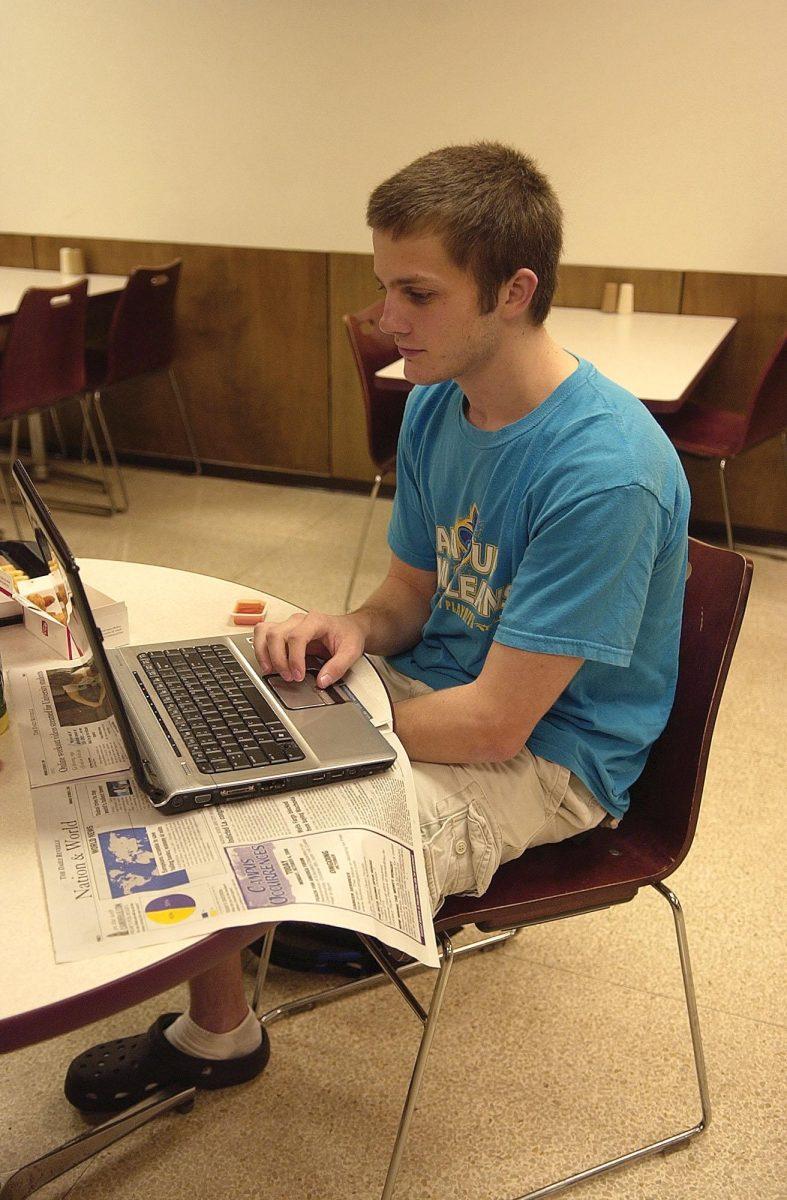To see a video on students’ opinions of dorms becoming wireless, click here.
In today’s tech-savvy world, anything tied to a wall by a wire is as foreign as black-and-white television and 30-cent gas. For University students living in residence halls, staying connected to the Internet has more than one meaning. So to keep up with today’s demands, Residential Life and Information Technology Services are developing a budget and schedule for residence halls and on-campus apartments to go wireless.ResLife Director Steve Waller said he is hopeful the project will be done by fall 2009.”We’re living in 2008 — it’s about time every apartment and residence hall have full [wireless] access,” said Colorado Robertson, Student Government president.Making residence halls and on-campus apartments completely wireless was part of Robertson’s platform established during elections last spring.”Adding the access points needed to make wireless Internet a possibility for residence halls and on-campus apartments would cost about $600,000,” said Sheri Thompson, I.T. Planning and Communications Officer. “It is a question of funding.” The Internet students use in residence halls — by plugging an ethernet cord from a port in a wall to their computer — is paid for by ResLife. Waller said a proposal is in the works.”We’re seeking input from students as far as their interest in a wireless environment and looking at how much it would [cost] to do it,” Waller said. “That’s where we’re at — an info-gathering phase.”Jenny Kornuta, president of the Residence Hall Association, is pushing hard for the project.”What I’ve heard from my own personal experience is that it’s an inconvenience,” she said. “[Students] have the ethernet ports in rooms, but it’s hard to study as a group or in their living rooms.”Waller contacted Kornuta to find out what students in other residence halls and apartments think about access to wireless Internet after learning that the I.T., Business and Engineering residential colleges were getting full wireless Internet access within the academic year.”[Waller] asked for RHA’s participation in figuring out what residents want,” Kornuta said. “ResLife is working on the facility and financial side of this issue — RHA is taking a more representative role.”Kornuta said RHA community council members conducted an “informal survey” to see if students would support a shift to wireless Internet. The response from students was overwhelmingly positive, Kornuta said.The possibility of a one-time rent increase of 1 percent was presented to students as part of the survey. Although each residence hall and on-campus apartment complex has different rent prices, the 1 percent increase would apply to all of them, Kornuta said.Plans are not finalized, but the fee increase would take effect next fall.”We’re excited about moving forward,” Waller said. “Students are interested in having full wireless capability. [ResLife] has been interested in doing this for some time.”If University residence halls and apartments go wireless, residents would still have the option of using an ethernet connection. “Ethernet ports would not be removed because it provides a faster Internet connection,” Kornuta said. The University has nearly 1,500 wireless access points outdoors and in classrooms, allowing students to access the Internet almost anywhere on campus. “It’s aggravating because I want to sit in my bed while I’m on the Internet,” said Chrysti Villafarra, education freshman and Miller Hall resident. Students can sometimes connect to lsusecure in their rooms and at all times in the lobbies, according to a wireless coverage map on the University’s GROK Knowledge Base Web site. All on-campus apartments have only wireless Internet in lobbies.”I take my laptop to some classes,” said Nick Williams, psychology freshman and East Laville Hall resident. “It’s a huge hassle to unplug my Internet connection every time.”—-Contact Kyle Bove at [email protected]
ResLife begins Wi-Fi planning
October 7, 2008



